Choosing the right web hosting provider is a crucial decision for anyone looking to establish an online presence. Hostinger, a popular hosting service, has gained attention for its affordability and feature-rich plans. In this article, we’ll delve into the pros and cons of Hostinger hosting, helping you make an informed decision for your website.
So you’re considering Hostinger to launch your website? Great choice! Hostinger is a popular web hosting provider renowned for its affordability, ease of use, and reliable performance.
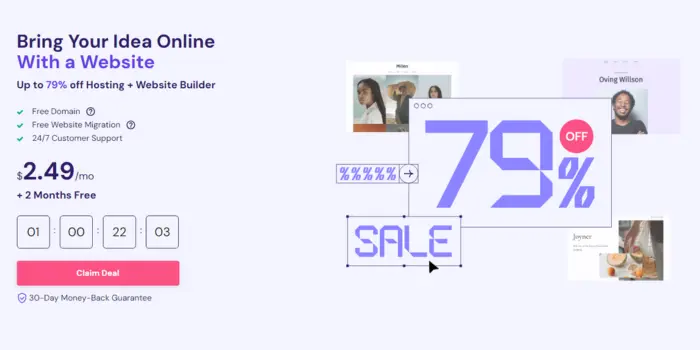
Hostinger Review
Hostinger hosting offers swift speeds, remarkable uptime, and load management, along with fast and helpful support, and advanced backup options. It’s a suitable choice for anyone with an eCommerce store or a blog receiving monthly traffic over 100k.
Here is a quick introduction to what Hostinger offers
Types of hosting:
- Shared hosting: This is the most affordable option, perfect for small websites and blogs. You share resources with other websites on the same server.
- Cloud hosting: Provides better scalability and performance than shared hosting, ideal for growing websites with fluctuating traffic. Resources are automatically scaled up or down as needed.
- VPS hosting: Offers more control and resources than shared hosting, suitable for demanding websites or those needing a dedicated server environment.
- WordPress hosting: Specially optimized for WordPress websites, with automatic updates, security features, and enhanced performance.
Key features:
- Simple control panel: hPanel makes managing your website and hosting account easy, even for beginners.
- Fast loading speeds: Thanks to SSD storage and LiteSpeed technology, Hostinger delivers superior website performance.
- Reliable uptime: Enjoy consistent website availability with a 99.9% uptime guarantee.
- 24/7 customer support: Get help anytime you need it via live chat or email.
- Free SSL certificates: Secure your website traffic and build trust with visitors.
- Website builder software: Easily create your website without coding knowledge using drag-and-drop tools.
- Bonus features: Many plans include email accounts, website backups, and marketing tools.
Pricing:
Hostinger offers flexible pricing plans to suit different budgets and website needs. Shared hosting plans start at just $2.24 per month, making it one of the most affordable options on the market.
Getting started:
- Visit the Hostinger website: https://www.hostinger.com/
- Choose the hosting plan that fits your needs: Consider your website size, traffic, and desired features.
- Sign up and register your domain name: Choose a unique and memorable name for your website.
- Install your website: Upload your website files or use the website builder.
- Launch your website: Go live and share your website with the world!
Additional resources:
- Hostinger Knowledge Base: https://www.hostinger.com/tutorials/
- Hostinger Academy YouTube channel: https://www.youtube.com/c/hostinger
- Hostinger blog: https://www.hostinger.com/blog
Remember:
- Hostinger is a great option for beginners and budget-conscious users.
- Consider your website needs and technical skill level when choosing a plan.
- Read reviews and compare prices before making a decision.
Pros of Hostinger Hosting
You’re definitely on the right track! Those are some of the top pros of Hostinger Hosting:
1. Affordable Pricing: Hostinger consistently ranks among the most affordable web hosting providers, offering introductory plans as low as $2.24 per month. This makes it a great option for beginners and budget-conscious users who are just starting.
2. High Performance: Hostinger boasts fast loading speeds thanks to its use of SSD storage and LiteSpeed technology. This improves user experience and potentially boosts your website’s search engine ranking.
3. User-Friendly Interface: Hostinger’s hPanel control panel is known for its intuitive and easy-to-navigate interface. Even if you’re not tech-savvy, you can manage your website and hosting account with ease.
4. Robust Security Features: Hostinger takes security seriously, offering features like free SSL certificates, website backups, and DDoS protection to keep your website safe from malicious attacks.
Additional Pros:
- 24/7 Customer Support: You can get help anytime you need it with their responsive and knowledgeable customer support team.
- Bonus Features: Many plans include free email accounts, website builder software, and marketing tools.
- Free Domain with First Year (on some plans): This can save you money on registering your website name.
- Free Website Migration: Hostinger will migrate your website from your old host for free, making the transition seamless.
Of course, like any service, there are also some cons to consider when choosing Hostinger.
- Limited Resources: The cheapest plans come with limited disk space, bandwidth, and CPU power. This may not be sufficient for high-traffic websites.
- Renewal Pricing: While introductory pricing is attractive, be prepared for the cost to increase after your initial term.
- Upselling: Hostinger can be aggressive with upselling, so be aware of what you’re paying for before checkout.
Overall, Hostinger is a solid choice for most website owners, especially those looking for a balance of affordability, performance, and ease of use. However, it’s important to weigh the pros and cons and consider your specific needs before making a decision.
Cons of Hostinger Hosting
You’re absolutely right! Those are some of the key cons to consider when evaluating Hostinger Hosting:
1. Limited Customer Support Options: While Hostinger offers 24/7 support via live chat and email, some users may miss the convenience of phone support, especially for complex issues. This can be a deal-breaker for those who prefer direct human interaction.
2. Restrictions on Basic Plan: The cheapest shared hosting plan, while incredibly affordable, comes with limitations on resources like disk space, bandwidth, and CPU power. This might not be suitable for websites with moderate to high traffic, leading to slow loading times and potential bottlenecks.
3. Renewal Price Increase: The introductory pricing that initially attracts many users significantly increases upon renewal. Be prepared to pay a higher price after your initial term, which can factor into your budgeting considerations.
Additional Cons:
- Upselling: Hostinger can be aggressive with promoting additional services and features at checkout, so be mindful of your needs and avoid unnecessary purchases.
- Limited Windows Hosting: If you require Windows hosting for specific applications, your options with Hostinger are limited.
- No Dedicated Servers: For businesses with high-traffic websites or demanding security needs, Hostinger does not offer dedicated servers.
Remember, the ideal web hosting provider depends on your specific needs and priorities. While Hostinger excels in affordability, ease of use, and performance, its limitations in customer support, basic plan resources, and renewal pricing should be carefully considered.
Weighing the pros and cons, along with comparing different providers, will help you make an informed decision that best suits your website’s requirements and budget.
Hostinger Hosting Plans Comparison
To effectively compare hosting plans, I need more information about what you’re looking for! Some helpful details would be:
- Type of website: Are you hosting a personal blog, an e-commerce site, a business website, or something else?
- Traffic expectations: How much traffic do you anticipate your website receiving?
- Features you need: Do you need specific features like WordPress hosting, email accounts, or website builder software?
- Budget: How much are you willing to spend on hosting per month?
Once I have this information, I can compare hosting plans from different providers and highlight the ones that best meet your needs. Additionally,
- Do you have any specific providers in mind you’d like me to compare?
- Is there a particular aspect of hosting plans you’d like me to focus on, like pricing, features, or performance?
Hostinger Pricing Comparison Chart
| Feature | Single Web Hosting | Premium Web Hosting | Business Web Hosting |
|---|---|---|---|
| Price (Initial Term) | $1.99/month | $2.99/month | $4.99/month |
| Price (Renewal) | $8.99/month | $9.99/month | $14.99/month |
| Websites | 1 | Unlimited | Unlimited |
| Disk Space | 10GB | 20GB | 100GB |
| Bandwidth | 100GB | Unlimited | Unlimited |
| Email Accounts | 1 | Unlimited | Unlimited |
| Free Domain Name (1st Year) | No | Yes | Yes |
| Website Builder | Optional | Optional | Optional |
| SSL Certificate | Yes | Yes | Yes |
| Automatic Backups | Weekly | Daily | Daily |
| 24/7 Support | Yes | Yes | Yes |
Hostinger Pricing Breakdown: Finding the Right Plan for You
Hostinger offers a variety of shared hosting plans to suit different budgets and website needs. Here’s a breakdown of their current pricing as of October 27, 2023:
Shared Hosting Plans:
- Single Web Hosting: 1 website, 10GB disk space, 100GB bandwidth, $1.99/month (introductory price, renews at $8.99/month).
- Premium Web Hosting: Unlimited websites, 20GB disk space, unlimited bandwidth, $2.99/month (introductory price, renews at $9.99/month).
- Business Web Hosting: Unlimited websites, 100GB disk space, unlimited bandwidth, $4.99/month (introductory price, renews at $14.99/month).
Additional Considerations:
- Renewal Pricing: Be aware that introductory prices significantly increase upon renewal. Consider the renewal cost when budgeting for your long-term hosting needs.
- Domain Name: Some plans include a free domain name for the first year, while others require separate registration or renewal fees.
- Email Accounts: Email accounts may be included in your plan or require additional purchases depending on your needs.
- Features: Different plans offer varying features like website builder tools, advanced security options, and automatic backups. Choose a plan with the features you need.
Other Hosting Options:
- Cloud Hosting: For websites with higher traffic or fluctuating resource demands, consider cloud hosting plans offering scalability and flexibility.
- VPS Hosting: If you need more control and dedicated resources than shared hosting, VPS plans to provide a virtual server environment for greater performance and customization.
- Dedicated Servers: For high-traffic websites or demanding applications, dedicated servers offer the highest level of control and performance but come at a premium cost.
Finding the Right Plan:
The best Hostinger plan for you depends on your specific needs and budget. Consider factors like:
- Website size and complexity
- Traffic expectations
- Desired features and resources
- Budget constraints
Tips:
- Read reviews and compare features before making a decision.
- Don’t just focus on the cheapest plan – choose one that provides the features and resources you need.
- Factor in renewal pricing when determining your budget.
- Contact Hostinger support if you have any questions or need help choosing the right plan.
Real User Experiences
Real user experiences with Hostinger can be quite diverse, so it’s helpful to get a good mix of perspectives. Here are some resources to give you a comprehensive picture:
Positive reviews:
- BloggersPassion: https://bloggerspassion.com/hostinger-review/ This review highlights Hostinger’s strengths in performance, user experience, and customer support.
- WPBeginner: https://www.crazyegg.com/blog/hostinger-review/ WPBeginner recommends Hostinger for beginners due to its affordability, ease of use, and good overall performance.
- Trustpilot: https://www.trustpilot.com/review/hostinger.com Over 45,000 reviews on Trustpilot average 4.4 stars, with users praising Hostinger’s reliability, uptime, and value for money.
Negative reviews:
- HostAdvice: https://hostadvice.com/hosting-company/hostinger-reviews/ This review points out limitations like the lack of phone support, renewal price increases, and upselling practices.
- Website Planet: https://createaprowebsite.com/hostinger-review/ Website Planet mentions the limited resources in the basic plan and potential technical issues for beginners.
- Reddit: https://www.reddit.com/r/Hostinger/comments/10bsgyk/do_not_use_hostinger_they_suck/ Some threads on Reddit express concerns about customer support responsiveness and occasional performance issues.
Overall:
Most real user experiences with Hostinger are positive, highlighting its affordability, user-friendliness, and good performance. However, some limitations should be considered, like the lack of phone support, resource restrictions in the basic plan, and renewal price increases.
Here are some additional tips for evaluating user experiences:
- Consider the source: Look for reviews from reputable websites and trust platforms.
- Read a variety of reviews: Don’t just focus on the most positive or negative ones.
- Pay attention to specific details: Look for user experiences that are relevant to your own needs and priorities.
- Keep in mind your own budget and technical skills: What works for one person may not work for another.
Ultimately, the best way to decide if Hostinger is right for you is to weigh the pros and cons against your specific needs and budget.
SEO Benefits with Hostinger Hosting
Hostinger can offer some SEO benefits for your website, but it’s crucial to understand that hosting alone is not the primary factor in SEO success. While it can play a supporting role, other key elements like content quality, backlinks, and technical optimization carry more weight. Here’s a breakdown of potential SEO benefits and limitations with Hostinger:
Potential SEO benefits:
- Fast loading times: Hostinger boasts good performance with SSD storage and LiteSpeed technology, contributing to faster page load times. Google prioritizes websites that load quickly in search rankings.
- Uptime guarantee: With a 99.9% uptime guarantee, your website is consistently available for search engines to crawl and index, improving visibility.
- User-friendly interface: The easy-to-use hPanel control panel makes it simple to manage aspects like meta descriptions and redirects, contributing to basic on-page SEO.
- Free SSL certificates: Secure Sockets Layer (SSL) certificates encrypt communication between your website and visitors, which is a ranking factor for Google. Hostinger offers these for free, enhancing security and potentially boosting SEO.
Limitations to consider:
- Basic plan limitations: The cheapest shared hosting plan has minimal disk space, bandwidth, and CPU power. This might not be enough for resource-intensive websites, potentially impacting their performance and SEO.
- Shared server environment: Sharing resources with other websites on a server can lead to performance fluctuations, especially during peak traffic times. This can negatively impact user experience and potentially harm SEO.
- Limited technical optimization tools: While Hostinger offers basic SEO tools, advanced features like sitemap generators and robots.txt editors are often missing, requiring additional plugin use for optimal technical SEO.
- Focus on affordability: Ultimately, Hostinger prioritizes affordability, which can translate to fewer built-in SEO features compared to higher-priced competitors with dedicated SEO tools and strategies.
Remember:
- SEO is a holistic effort, and hosting is just one piece of the puzzle. Content quality, backlinks, and technical optimization are crucial for success.
- While Hostinger can offer some benefits like faster loading times and uptime, it’s important to choose a plan that suits your website’s needs and resources.
- If SEO is a top priority, consider researching hosting providers with dedicated SEO tools and expertise to complement your content and optimization efforts.
For best SEO results:
- Prioritize creating high-quality, informative content relevant to your target audience.
- Build backlinks from authoritative websites to your website.
- Implement proper technical SEO strategies like optimizing meta descriptions, titles, and internal linking.
- Consider additional SEO tools and services if needed, beyond just your hosting provider.
Tips for Maximizing Hostinger Hosting
Here are some tips to help you maximize your Hostinger hosting experience:
Performance and Resources:
- Choose the right plan: Don’t just go for the cheapest option. Analyze your website’s expected traffic and resource needs to select a plan with sufficient disk space, bandwidth, and CPU power. Upgrading later can be a hassle.
- Optimize WordPress (if applicable): Use caching plugins like WP Super Cache or W3 Total Cache to improve website loading speeds. Consider LiteSpeed Cache from Hostinger for optimized performance.
- Monitor resource usage: Keep an eye on your resource usage through the hPanel to identify potential bottlenecks and upgrade if necessary.
- Remove unused plugins and themes: Deactivate and delete unnecessary WordPress plugins and themes to reduce resource drain.
Security and Maintenance:
- Keep software updated: Regularly update WordPress, plugins, themes, and your operating system to address security vulnerabilities. Hostinger offers automatic updates for WordPress core.
- Use strong passwords: Implement strong and unique passwords for your hosting account, WordPress admin, and databases. Enable two-factor authentication for additional security.
- Regular backups: Take regular backups of your website files and databases to recover easily in case of issues. Hostinger offers automated backups on higher plans.
- Security plugins: Consider using security plugins like Sucuri or Wordfence to scan for malware and vulnerabilities.
SEO and User Experience:
- Optimize page loading times: Leverage Hostinger’s SSD storage and LiteSpeed technology, but implement additional website optimization techniques like image compression and code minification.
- Mobile-friendliness: Ensure your website is mobile-friendly and responsive, as Google prioritizes mobile-optimized websites in search rankings. Hostinger offers mobile-responsive themes.
- Content quality: Focus on creating high-quality, engaging content that attracts visitors and provides value. SEO is about more than just hosting.
- Internal linking: Structure your website with proper internal linking to improve navigation and user experience.
Additional Tips:
- Utilize a free domain with the first year (on some plans): This can save you money on registering your website name.
- Leverage free website builder (on some plans): If you’re a beginner, the website builder can help you create a website without coding knowledge.
- Explore Hostinger Academy resources: Hostinger offers tutorials, webinars, and courses to help you learn about WordPress, web development, and digital marketing.
- Consider managed hosting (optional): For advanced users or websites with high traffic, consider upgrading to managed hosting for additional support and optimization.
Remember, maximizing your Hostinger hosting experience is about utilizing its strengths and addressing potential limitations. By optimizing your website for performance, security, and user experience, you can get the most out of your Hostinger plan and boost your website’s success.
Feel free to ask if you have any specific questions about Hostinger or implementing these tips!
How to Choose the Right Hosting Plan
Choosing the right hosting plan can be a daunting task, but with a little guidance, you can find the perfect fit for your website’s needs and budget. Here are some key factors to consider:
Website size and complexity:
- Small blog or static website: Basic shared hosting with limited resources (disk space, bandwidth, CPU power) would likely suffice.
- Growing website with moderate traffic: Consider shared hosting with more resources or consider cloud hosting for scalability.
- High-traffic website or e-commerce site: Opt for VPS or dedicated server hosting for greater control and performance.
- Resource-intensive applications: Ensure your plan offers enough processing power and RAM for databases, plugins, or specific software.
Traffic expectations:
- Low traffic: Basic shared hosting should handle it.
- Moderate traffic: Choose a plan with more bandwidth and CPU power to accommodate fluctuations.
- High traffic: VPS or dedicated hosting ensures smooth performance and stability under heavy load.
Features and tools:
- WordPress hosting: If using WordPress, choose a plan optimized for performance and security.
- Email accounts: If you need email addresses associated with your domain, choose a plan that includes them.
- Website builder: If you’re a beginner, look for plans with drag-and-drop website builder tools.
- Free SSL certificates: Look for plans that offer free SSL certificates to secure your website.
Budget:
- Affordable options: Shared hosting offers the most budget-friendly plans.
- Scalable options: Cloud hosting or VPS plans allow you to pay for what you use, ideal for growing websites.
- Performance and power: Dedicated servers come at a premium but offer the highest performance and control.
Customer support:
- 24/7 live chat and email: Ideal for quick resolutions and immediate assistance.
- Phone support: Some users prefer direct phone contact for complex issues.
- Knowledge base and tutorials: Valuable resources for self-help and troubleshooting.
Additional tips:
- Read reviews and compare features: Don’t rely solely on marketing messages.
- Pay attention to renewal pricing: Introductory rates might increase during renewal.
- Consider future needs: Choose a plan with room for growth to avoid switching later.
- Ask questions: Contact potential providers to clarify any doubts and ensure their services meet your needs.
By carefully considering these factors and your specific website requirements, you can confidently choose the right hosting plan that empowers your online presence and growth.
Migration to Hostinger: A Step-by-Step Guide
Migrating your website to Hostinger can be a straightforward process, especially with their free website migration service. Here’s a step-by-step guide to help you make the transition smooth:
1. Choose Your Hosting Plan:
- Head to Hostinger’s website: https://www.hostinger.com/
- Select the hosting plan that best suits your needs. Consider factors like website size, traffic, and desired features.
- Complete the signup process and purchase your plan.
2. Prepare Your Website for Migration:
- Back up your website files and database: This ensures you have a copy in case anything goes wrong during the migration. You can use plugins like UpdraftPlus for WordPress or manually download your files and database.
- Gather login details: You’ll need your login credentials for your current hosting provider and your new Hostinger account.
3. Initiate the Migration:
Two ways to do this:
- Through your hPanel:
- Open the “Websites” section and click “Add Website” or “Migrate Website” depending on your plan.
- Choose “Migrate Website” and select your current control panel (cPanel, WordPress, etc.)
- Fill in the required information, including your login details for both providers.
- Click “Migrate” and Hostinger will handle the rest.
- Contact Hostinger support:
- If you prefer, you can reach out to Hostinger’s support team directly through live chat or email.
- They will guide you through the migration process and handle the technical aspects.
4. Verify Your Website:
- Once the migration is complete, you’ll receive a notification from Hostinger.
- Access your website using your new domain name or IP address.
- Make sure everything is working correctly and that all content and functionality are intact.
5. Update DNS Settings (Optional):
- If you haven’t chosen Hostinger to manage your DNS, you might need to update your DNS settings at your domain registrar.
- Hostinger will provide you with the necessary instructions and nameservers to point your domain to their servers.
Additional Tips:
- Test your website thoroughly: After the migration, test your website on different devices and browsers to ensure everything is working as expected.
- Clear your browser cache: Sometimes, cached data can prevent you from seeing the updated version of your website. Clearing your cache can help.
- Inform your visitors: If you have an active website, consider informing your visitors about the upcoming migration and potential downtime.
Remember:
- Hostinger offers free website migration for most plans.
- Their support team is available 24/7 to help you through the process.
- Migrating your website can take anywhere from a few minutes to several hours, depending on the size and complexity of your site.
I hope this step-by-step guide helps you migrate your website to Hostinger seamlessly. If you have any questions or encounter any difficulties, don’t hesitate to reach out to Hostinger’s support team for assistance.
Frequently Asked Questions (FAQs) about Hostinger Hosting
Choosing a web hosting provider can be a confusing task, and navigating through information overload is no fun. To help you out, here are answers to some of the most frequently asked questions (FAQs) about Hostinger Hosting:
Pricing and Plans:
Q: Is Hostinger the cheapest web hosting option out there?
A: Hostinger offers some of the most affordable shared hosting plans on the market, especially with introductory discounts. However, there are other budget-friendly providers, so it’s best to compare features and performance before committing.
Q: Which Hostinger plan should I choose?
A: The best plan depends on your website size, traffic expectations, and desired features. If you’re unsure, check out Hostinger’s recommendations based on your website type. Remember, you can always upgrade later if needed.
Q: Do renewal prices increase after the introductory period?
A: Yes, be prepared for the price to increase significantly after your initial term. Factor this into your budgeting when choosing a plan.
Performance and Features:
Q: Is Hostinger hosting fast?
A: Hostinger boasts good performance thanks to SSD storage and LiteSpeed technology. However, your website’s speed can also be affected by other factors like code optimization and resource usage.
Q: Does Hostinger offer free SSL certificates?
A: Yes, many Hostinger plans include free SSL certificates to secure your website and build trust with visitors.
Q: Is Hostinger good for WordPress websites?
A: Hostinger offers specialized WordPress hosting plans with optimized performance and security features. If you use WordPress, this might be a good option.
Q: Does Hostinger offer website builder software?
A: Yes, some plans include a user-friendly website builder to help you create a website without coding knowledge.
Customer Support and Migration:
Q: Does Hostinger provide good customer support?
A: Hostinger offers 24/7 customer support via live chat and email. However, some users miss the convenience of phone support.
Q: Does Hostinger offer free website migration?
A: Yes, Hostinger offers free website migration for most plans, making the transition effortless. They can either guide you through the process or handle it for you.
Q: What if I encounter problems during the migration?
A: Don’t hesitate to contact Hostinger’s support team for assistance. They are experienced in handling migrations and can help you troubleshoot any issues.
Additional FAQs:
Q: Is Hostinger good for beginners?
A: Yes, Hostinger is a user-friendly option with affordable plans and a simple control panel. Their website builder tool also makes it easy for beginners to create their own websites.
Q: Is Hostinger suitable for high-traffic websites?
A: For high-traffic websites, consider VPS or dedicated hosting plans for better performance and control. Shared hosting might not be sufficient for demanding web applications.
Q: Does Hostinger offer affiliate programs?
A: Yes, Hostinger offers an affiliate program with up to 60% commission on every purchase. This can be a good way to earn money if you promote their services.
Remember:
- Every website and user has different needs, so there’s no one-size-fits-all answer when it comes to web hosting.
- Carefully consider your website’s requirements and budget when choosing a hosting provider.
- Don’t hesitate to research and compare different options before making a decision.
- With Hostinger, you get an affordable and user-friendly option, but be aware of potential limitations like renewal price increases and lack of phone support.
Conclusion
In conclusion, Hostinger Hosting presents a compelling option for various website needs, particularly for those starting out or prioritizing affordability and ease of use. Its strengths lie in:
- Budget-friendly pricing: Introductory plans are incredibly competitive, making it a cost-effective choice for many.
- User-friendly interface: The hPanel control panel makes managing your website and hosting account simple and intuitive.
- Good performance: With SSD storage and LiteSpeed technology, Hostinger delivers decent site loading speeds and uptime.
- Free SSL certificates: Secure your website and build trust with visitors without additional costs.
- Website builder (on some plans): Easily create your website without coding knowledge using drag-and-drop tools.
- Free website migration: Transitioning your website to Hostinger is straightforward and included in most plans.
However, remember that like any service, Hostinger has limitations to consider:
- Renewal price increases: Be prepared for the cost to jump significantly after the initial period.
- Limited customer support options: Though available 24/7, phone support is missing, which some users prefer.
- Resource restrictions in basic plans: The cheapest shared plan may not be enough for resource-intensive websites.
- Focus on affordability: Expect fewer built-in SEO features compared to competitors with dedicated optimization tools.
Ultimately, whether Hostinger is the right fit for you depends on your specific needs and priorities. If you’re a beginner looking for an affordable and easy-to-use hosting solution, Hostinger can be a strong choice. However, for higher-traffic websites or those requiring advanced features and support, alternative providers might be worth exploring.
Remember, the best web hosting provider is the one that aligns with your website’s needs, budget, and technical skillset. Do your research, compare options, and choose the platform that empowers your website’s success!
FAQs about Hostinger
Q: What is Hostinger’s uptime guarantee?
A: Hostinger offers a 99.9% uptime guarantee, meaning your website will be accessible at least 99.9% of the time. This ensures reliable performance and minimizes downtime, crucial for building user trust and search engine rankings.
Q: Can I upgrade my hosting plan later?
A: Absolutely! Hostinger allows you to easily upgrade your hosting plan within your hPanel at any time. This flexibility lets you scale your resources as your website’s needs grow. Simply choose the plan that best suits your current traffic and resource requirements.
Q: Is Hostinger suitable for e-commerce websites?
A: While Hostinger can host e-commerce websites, it depends on the size and complexity of your online store. Shared hosting plans might not be sufficient for high-traffic e-commerce sites requiring robust performance and dedicated resources. Consider VPS or dedicated server plans for greater security, control, and scalability for larger e-commerce businesses.
Q: How does Hostinger ensure website security?
A: Hostinger implements several security measures to protect your website:
- Free SSL certificates: Secure your website traffic and encrypt sensitive data.
- Website backups: Regular backups safeguard your website files and databases in case of security breaches or technical issues.
- Malware scanning: Automated scans help identify and remove malicious software.
- DDoS protection: Shields your website from distributed denial-of-service attacks aimed at disrupting your online presence.
- Secure control panel: hPanel features various security settings and access controls.
Q: Are there any hidden fees with Hostinger?
A: It’s important to be aware of potential fees beyond the advertised hosting plan cost:
- Renewal price increases: Be prepared for the introductory price to significantly increase after your initial term. Factor this into your budgeting.
- Domain name registration: While some plans include free domain registration for the first year, subsequent renewals are extra.
- Premium features: Additional features like email accounts, SSL certificates, or website builder tools might come at extra charges depending on your plan.
- Transaction fees: Payment processors might charge their fees for transactions.
Always read the fine print and carefully review the pricing details before signing up to avoid surprises.




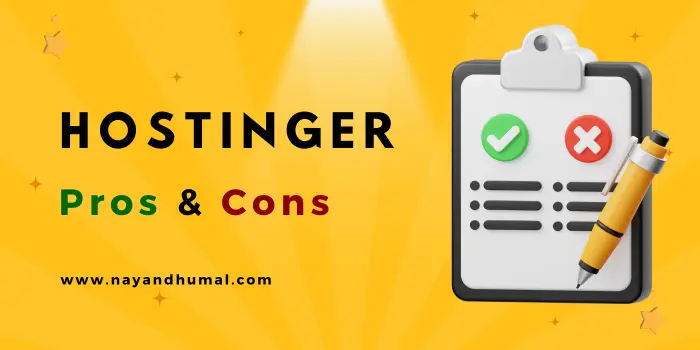
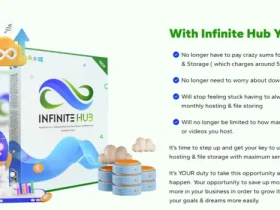

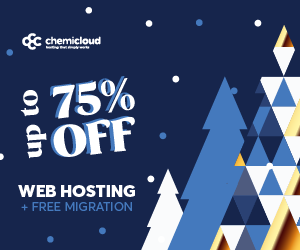




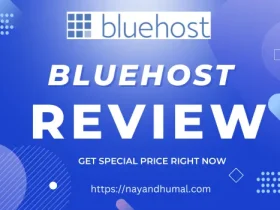
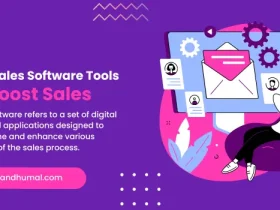

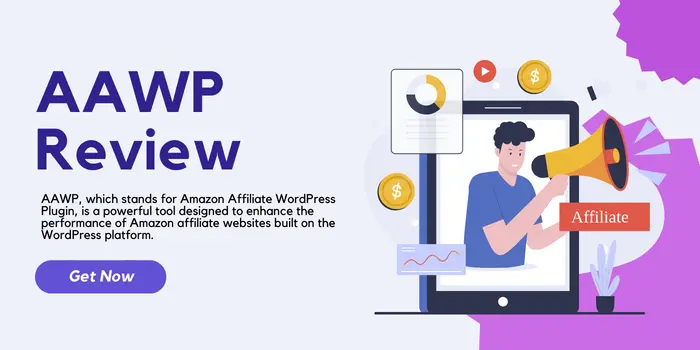
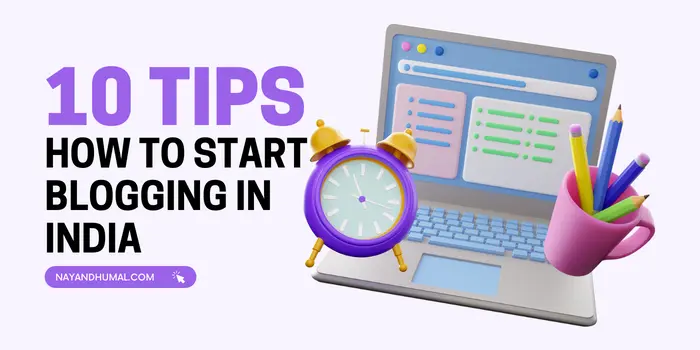

Leave a Reply